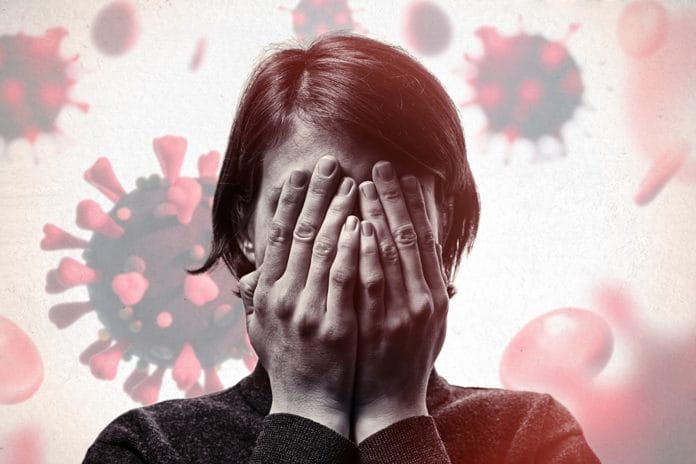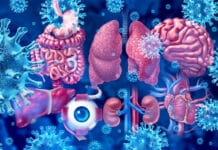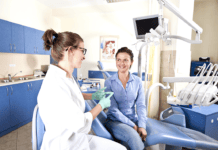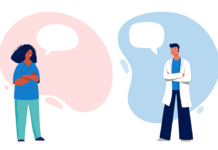Among Americans who were surveyed by the American Institute of Stress, 77% reported physical symptoms as a result of stress.1 It may surprise you to learn that this 2017 survey occurred prior to the COVID-19 pandemic.
The stress load today, specifically for dental practice owners and employees, maybe much higher. Temporary practice closures are contributing to the stress load. According to the same survey,1 the most common sources of stress included:
- Job Pressure – Co-worker tension, bosses, work overload
- Money – Loss of job, reduced retirement, medical expenses
- Health – Health crisis, terminal, or chronic illness
- Relationships – Divorce, death of spouse, arguments with friends, loneliness
- Poor nutrition − Inadequate nutrition, caffeine, processed foods, refined sugars
- Media overload – Television, radio, internet, email, social networking
- Sleep deprivation – Inability to release adrenaline and other stress hormones
Several of you may find that more than one category applies during this health crisis. Although it is not an economic crisis, it is certainly a health crisis with economic implications. Rapid changes in our everyday lives are naturally creating stress. It may be time to employ some health strategies to reduce the load by following the science.
The Science Behind Stress
A stressful event creates a release of hormones called cortisol by the hypothalamus through the adrenal glands into the bloodstream. Your blood sugar increases, adrenaline causes a more rapid heart rate, and oxygen fills your muscles, creating tension. Acute stress takes about 90 minutes for the metabolism to return to normal when the response is over.4 Chronic stress that is maintained at a lower level but for a longer period of time can have life-long health implications.
According to Harvard Medical School, “repeated activation of the stress response takes a toll on the body. Research suggests that chronic stress contributes to high blood pressure, promotes the formation of artery-clogging deposits, and causes brain changes that may contribute to anxiety, depression, and addiction. More preliminary research suggests that chronic stress may also contribute to obesity, both through direct mechanisms (causing people to eat more) or indirectly (decreasing sleep and exercise).”2
This is true for chronic, low-level stress as well as repeated episodes of high-level stress. Chronic stress is more challenging than acute stress since the continual source of stress does not allow the body a chance to correct itself and return to normal functioning. Symptoms can manifest as sleep disorders, digestive challenges, cardiovascular episodes, headaches, overall anxiety, and more.
The Stages of Stress
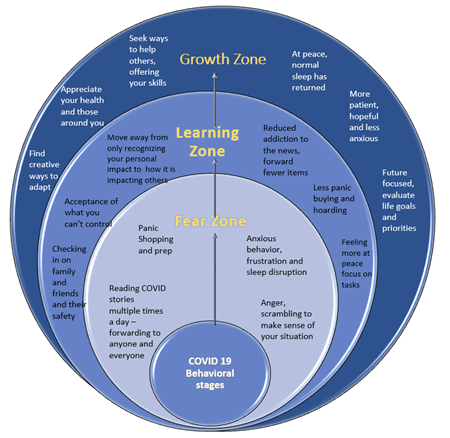
The image is an adaptation of fear to growth models of behavior that has been modified to show behavior related to COVID-19 stressors. You may have seen several variations through social media during this crisis. Identify where you are currently and what the behaviors of the next stage look like. Be kind to yourself as you determine where you currently fit. People who have suffered a larger impact may move more slowly through these stages, and that is OK.
Ideally, the situation causing stress is identified and removed, and life then goes back to normal. In our current situation, small victories (such as economic relief from various legislative measures) along the way will reduce the release of cortisol. Fortunately, additional measures that we can take also control cortisol release and counter the stress response.
Acute stress situations warrant deep, abdominal breathing techniques as well as meditation to lower the stress hormone. Chronic, low-level stress needs a different, longer-term strategy to reduce negative health effects.
Be observant. Identify the signs and symptoms of stress in your body and take action. Identify the current stage you are in and know your reactions are normal.
Talk to a healthcare provider. If you are unable to minimize your body’s response to stress, reach out to a healthcare professional for options.
Positive thoughts. Identify the positive outcomes that are a result of this situation. Perhaps you are finding the opportunity to connect at a deeper level with your partner, children, or even pets. You may have spent time re-evaluating life goals or simply cleaned out a cluttered closet.
Negative thoughts can spiral quickly, consume your mind, and trigger the release of more cortisol. The science behind stress continues to control your body.
Reduce this cycle by forcing positive thoughts into your daily routine. Make a list for easy reference in order to displace negative thoughts. Replacing negative thoughts with positive ones gives your body a break – and your health a boost. Don’t underestimate the power of positive thoughts.
Exercise/Walk. Stress hormones create an energy in your body that signals a “fight or flight” sensation. Release this energy through exercise; just 30 minutes of walking will help. Remaining stagnant, such as sitting at a desk, does not allow an opportunity for that stress to dissipate.
Physical exercise produces endorphins that get your blood flowing. Endorphins, commonly known as the “natural painkiller,” help you to sleep. You may notice after a workout that you sleep more soundly. Endorphins help you sleep, and cortisol release diminishes during sleep.
Diet. It may seem obvious, but diet plays a large factor in limiting our body’s ability to deal with stress. Caffeine and alcohol, in particular, make it difficult to maintain a lowered stress level as alcohol blocks the chemical adenosine, and alcohol has an effect on serotonin. You may not feel as though you can control the chemical response to stress, but you can control the chemical response created by diet choices.
Meditation. While meditation can be hard to achieve without practice, taking time to focus on tranquil images free from noise and distraction can lower blood pressure. Similar to exercise, meditation produces endorphins that help with better sleep.
Community support. Speak about your stress and anxiety to family, friends, co-workers, and mental health professionals. You may be surprised that they feel the same stress during this challenging time, and you develop a “we are in this together” camaraderie. Utilize technology to chat with video.
Relaxation activities. Explore meditation apps and set aside time to center your thoughts to provide a mental and physical stress break.
- Best anxiety Apps of 2019 from Healthline5
- Headspace
- Rootd
- Acupressure: Heal Yourself
- Stop Panic and Anxiety Self-help
- Sleeptime
- Relax and Rest Guided Meditations
- Calm
- Stop, Breathe and Think
- Ted Talks:
- Checking In with Susan David
- How to Make Stress Your Friend with Kelly McGonigal
- All It Takes is Ten Mindful Minutes with Andy Puddicombe
- How to Stay Calm when you Know You’ll be Stressed with Daniel Levitin
- Books:
- Why Zebras Don’t Get Ulcers, Robert Zapolsky
- Rising Strong, Brene Brown
- Declutter Your Mind, S.J. Scott
Sleep habits. For a long time, it was believed that sleep deprivation was a symptom of stress. Recently, studiesare showing that perhaps it is the opposite: sleep deprivation causes stress.3 During REM sleep, the stage of sleep where dreams happen, it’s been found that levels of norepinephrine and cortisol decrease.
Essentially, more time spent in the REM stage of sleep will reduce stress.3 Develop good sleep habits that include a routine bedtime with tranquil, meditative exercises to increase REM sleep.
Set goals and lists. You may not be able to remove the stress, but you can diminish the impact by setting goals and accomplishing tasks. Make a list of things you would like to improve around your home, garden, or other areas that will give you joy on completion.
The stress load for dental professionals, especially dental hygienists, is at an all-time high. The fear of returning to work without proper protection, income losses, and isolation from stay-home orders are mounting. Please know that stressful events have a beginning, a middle, and an end. People react differently and enter different stages of stress at different times.
Be patient with yourself and others as we all face this crisis together. The roadmap back to work has not been clearly defined. As heightened safety measures are mandated, and appreciation grows for the risk associated with our services, we can expect to return to a stronger profession than the one we left behind in the pre-COVID-19 era.
Now Listen to the Today’s RDH Dental Hygiene Podcast Below:
References
- Stress Research, American Psychological Association, 2017 as reported by The American Institute of Stress. Retrieved from https://www.stress.org/stress-research.
- Harvard Medical School, Understanding the Stress Response, Chronic Activation of this Survival mechanism Impairs Health, published March 2011, updated May 1, 2018. Retrieved from https://www.health.harvard.edu/staying-healthy/understanding-the-stress-response.
- things You Should Know About Stress, U.S. Department of Health and Human Services
National Institutes of Health, NIH Publication No. 19-MH-8109, Retrieved from https://www.nimh.nih.gov/health/publications/stress/index.shtml. - What is Stress? The American Institute of Stress, Research date 2017. Retrieved from https://www.stress.org/daily-life.
- Doyle, A. The Best Anxiety Apps of 2019, Healthline, April 29, 2019. Retrieved from https://www.healthline.com/health/anxiety/top-iphone-android-apps.

